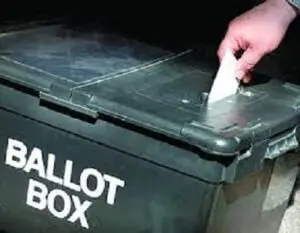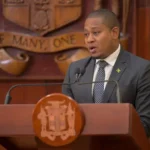THE VALLEY, Anguilla — Anguilla finds itself at a pivotal moment this week as the island’s voters head to the polls in a highly anticipated general election. Early voting began on Tuesday for selected groups and seniors, while the broader electorate will cast their ballots on Wednesday, February 20, 2025. This election marks a defining moment for the British Overseas Territory, as residents choose who will lead them into the next chapter of economic and social change.
The upcoming election sees a crowded field of 34 candidates competing for 11 seats in the House of Assembly. The race is primarily between the Anguilla Progressive Movement (APM), led by incumbent Premier Ellis L. Webster, and the Anguilla United Front (AUF), headed by Cora Richardson-Hodge. Other notable contenders include the Anguilla Reliable Team (ART) and five independent candidates, who are all vying for a share of the island’s political power.
Diverse Contestants, Complex Choices
Anguilla’s voting system is a blend of single-member district elections and at-large voting. Seven of the 11 seats are decided by first-past-the-post elections in individual constituencies, while the remaining four seats are chosen island-wide through plurality at-large voting. Voters will select up to four candidates for the at-large seats, with the party or coalition that secures seven seats gaining a majority in the House.
As political tensions rise, several issues have dominated the election campaign:
- Economic Policy: The Goods and Services Tax (GST) remains a hotly debated topic, with some seeing it as a necessary step toward fiscal reform, while others argue it will place additional burdens on the population.
- Tourism and Infrastructure: With the island’s tourism sector as a cornerstone of its economy, there are discussions about how to expand it sustainably while addressing infrastructure challenges.
- AI and Digital Economy: Anguilla’s artificial intelligence and digital domains have garnered significant attention, with the island looking to position itself as a global leader in these sectors.
- Crime and Public Safety: Public safety remains a key concern as residents demand stronger measures to address rising crime rates.
- Cost of Living: Rising living costs, particularly in housing and essential goods, are top of mind for many voters.
New Procedures for a Smooth Election
In an effort to improve the voting process, voter identification cards have been implemented to reduce waiting times at polling stations. However, Rodney Rey, the Supervisor of Elections, has issued a reminder that voters who registered late on February 24 will not be eligible to vote in the early phase and must wait until the official election day to cast their ballots.
The election could serve as a turning point in the island’s governance, with political analysts closely watching whether the APM will maintain its hold on power or if the AUF or independent candidates will challenge the status quo. With 12,432 registered voters taking part in the process, the stakes are higher than ever as Anguilla’s future leadership is decided.






